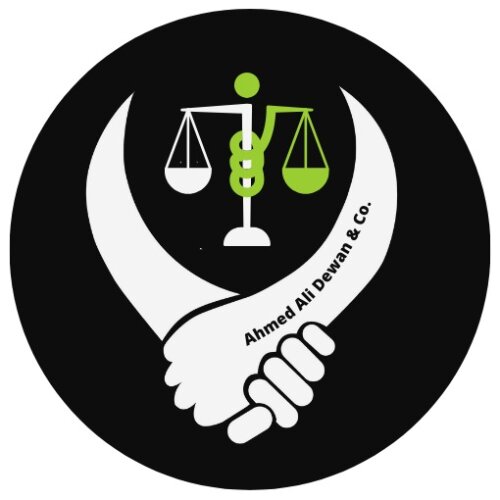Best Cannabis Law Lawyers in Pakistan
Share your needs with us, get contacted by law firms.
Free. Takes 2 min.
Or refine your search by selecting a city:
List of the best lawyers in Pakistan
About Cannabis Law in Pakistan
Cannabis, commonly referred to as "bhang," "charas," or "hashish" in local vernacular, has been used historically in various parts of the Indian subcontinent. However, in contemporary times, the legality of cannabis in Pakistan is governed by stringent narcotics control laws. The primary legislation is the Control of Narcotic Substances Act, 1997, which criminalizes the production, possession, and trafficking of cannabis. It includes hefty penalties ranging from fines to imprisonment for those found in violation. While cannabis use is prevalent culturally and socially among certain groups, its production, sale, and consumption are largely illegal and frowned upon within the legal system.
Why You May Need a Lawyer
There are several scenarios where one might require legal assistance concerning cannabis in Pakistan:
- Arrest or Detainment: If apprehended on charges of cannabis possession or trafficking.
- Business Ventures: For those seeking to engage in legal activities related to cannabis, such as medical cannabis initiatives or seeking governmental permissions.
- Legal Defense: To defend against charges that could result in significant fines or imprisonment.
- Understanding Legislation: To gain clearer insight into the complex legal landscape surrounding cannabis, especially for NGOs and activists.
- Policy Advocacy: Assistance in lobbying for legal reform or participating in policy discussions.
Local Laws Overview
The following are key aspects of cannabis laws in Pakistan that are of particular relevance:
- Control of Narcotic Substances Act, 1997: This is the primary legal framework governing cannabis as a controlled substance.
- Penalties: Penalties for cannabis-related offenses can include fines and significant terms of imprisonment, depending on the quantity of the substance involved.
- Religious and Cultural Considerations: The use of cannabis intersects with cultural practices in Pakistan, but this does not exempt it from legal restrictions.
- Medical Cannabis: As of now, there is limited legal provision for the use of cannabis for medical purposes, though discussions and lobbying for change are ongoing.
- Government Policy: Enforcement priorities may vary, but cannabis remains a prohibited substance under federal law.
Frequently Asked Questions
Is cannabis legal in Pakistan?
No, cannabis is primarily illegal for production, sale, and consumption under the Control of Narcotic Substances Act, 1997.
What are the penalties for possessing cannabis?
Penalties vary based on the quantity; minor possession could lead to fines or short imprisonment, while larger amounts result in stricter punishments.
Can cannabis be used for medical purposes in Pakistan?
The use of medical cannabis is largely unregulated, though there is ongoing discourse about its potential legalization for health reasons.
Are there any legal cannabis businesses in Pakistan?
At present, there are no legally sanctioned cannabis businesses, but discussions about medical and industrial use are developing.
How prevalent is the use of cannabis in Pakistan culturally?
Cannabis has cultural significance and is used in certain religious and social contexts despite its legal status, but usage still faces legal risks.
Can a foreigner face deportation for cannabis offenses in Pakistan?
Yes, foreigners can face deportation along with other penalties for cannabis-related offenses in Pakistan.
Is there any movement toward cannabis legalization in Pakistan?
While not a mainstream political issue, there is increasing advocacy for medical and industrial legalization of cannabis.
Are there alternatives to imprisonment for cannabis offenses?
Depending on the case, legal provisions like fines or rehabilitation might be considered, but this is subject to judicial discretion.
Can I be detained without evidence of cannabis use or possession?
Unlawful detention without evidence is against legal principles; it’s crucial to seek legal assistance if faced with such a situation.
How can NGOs operate regarding cannabis without legal issues?
NGOs should engage in policy advocacy and education while operating within the existing legal framework to avoid legal issues.
Additional Resources
If you are seeking more information or legal assistance regarding cannabis laws in Pakistan, consider the following resources:
- Pakistan Bar Council: Offers a directory of legal practitioners, including those specializing in narcotics law.
- Ministry of Narcotics Control: The governmental body responsible for drug policy and enforcement.
- Legal Aid Societies: Organizations providing free or low-cost legal services.
- NGOs: Groups such as Human Rights Watch offer additional insights and advocacy support related to drug laws.
Next Steps
If you need legal assistance concerning cannabis in Pakistan:
- Identify Your Needs: Determine if you need a lawyer for defense, business, or advisory purposes.
- Consult With Experts: Reach out to a legal expert with experience in narcotics law.
- Gather Documentation: Prepare all relevant documents and details pertaining to your case or questions.
- Explore Legal Aid: If costs are a concern, reach out to legal aid organizations for support.
- Stay Informed: Regularly update yourself with any changes in the legal landscape regarding cannabis in Pakistan.
Lawzana helps you find the best lawyers and law firms in Pakistan through a curated and pre-screened list of qualified legal professionals. Our platform offers rankings and detailed profiles of attorneys and law firms, allowing you to compare based on practice areas, including Cannabis Law, experience, and client feedback.
Each profile includes a description of the firm's areas of practice, client reviews, team members and partners, year of establishment, spoken languages, office locations, contact information, social media presence, and any published articles or resources. Most firms on our platform speak English and are experienced in both local and international legal matters.
Get a quote from top-rated law firms in Pakistan — quickly, securely, and without unnecessary hassle.
Disclaimer:
The information provided on this page is for general informational purposes only and does not constitute legal advice. While we strive to ensure the accuracy and relevance of the content, legal information may change over time, and interpretations of the law can vary. You should always consult with a qualified legal professional for advice specific to your situation.
We disclaim all liability for actions taken or not taken based on the content of this page. If you believe any information is incorrect or outdated, please contact us, and we will review and update it where appropriate.
Browse cannabis law law firms by city in Pakistan
Refine your search by selecting a city.

















